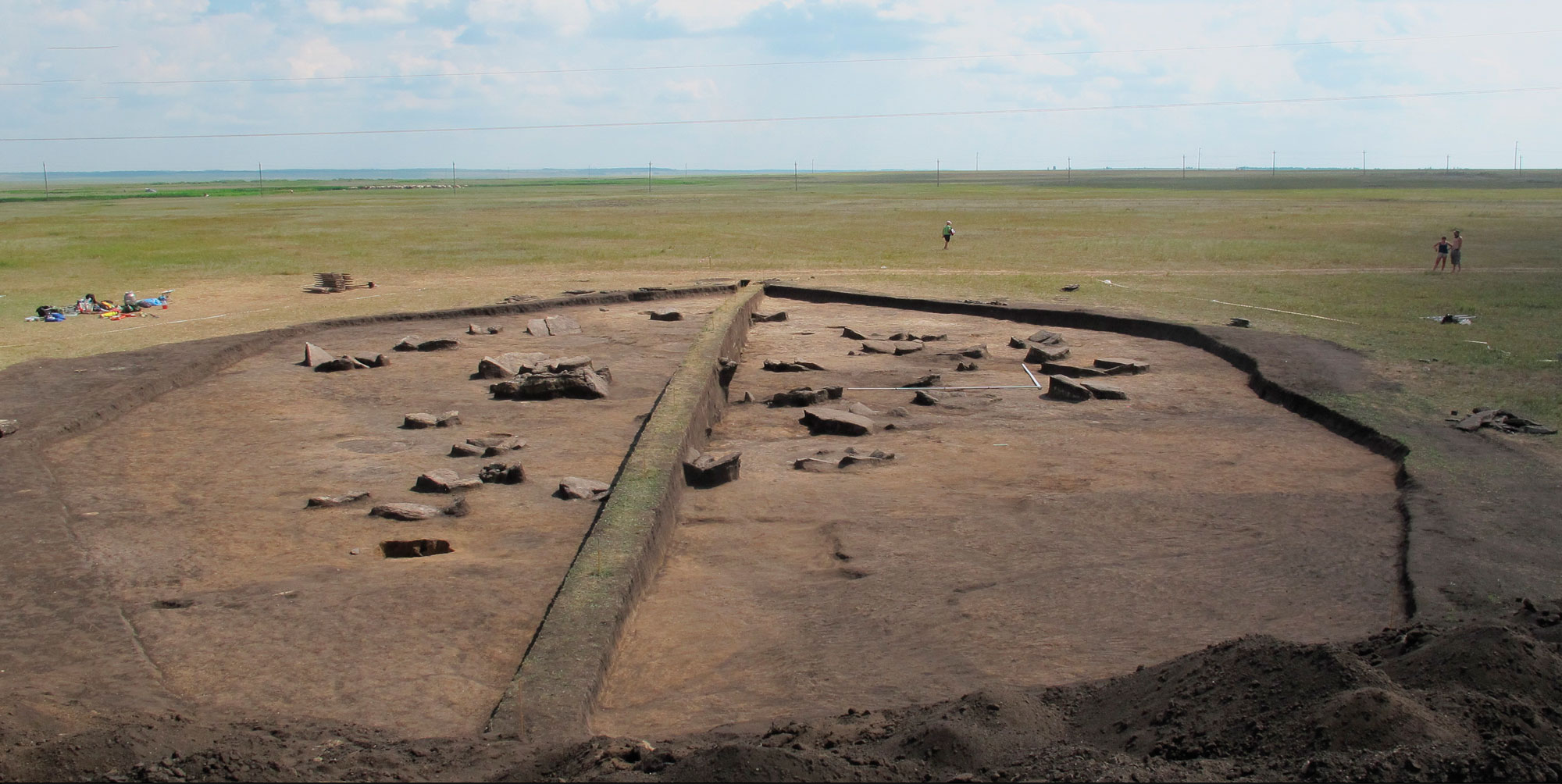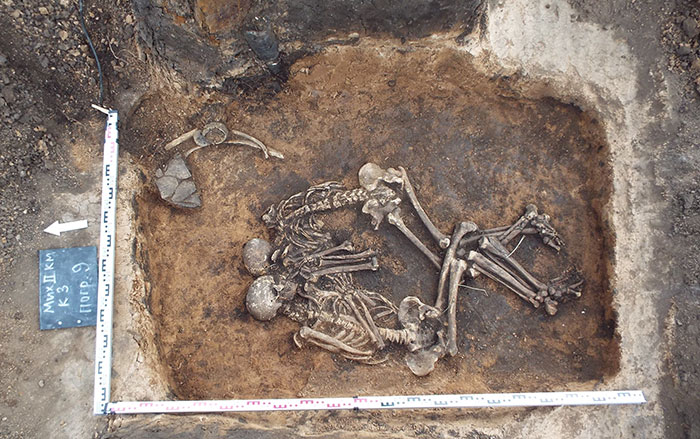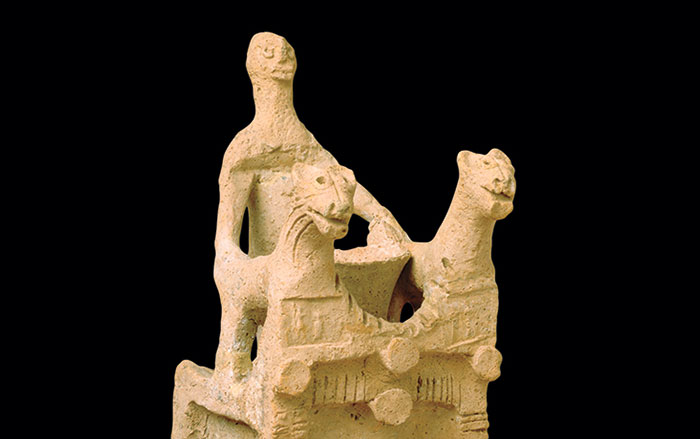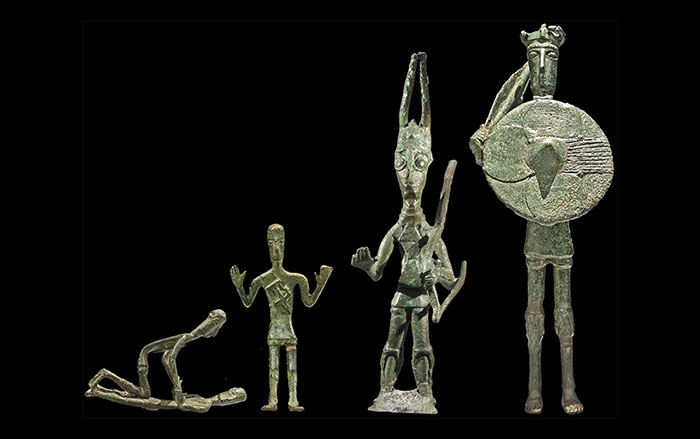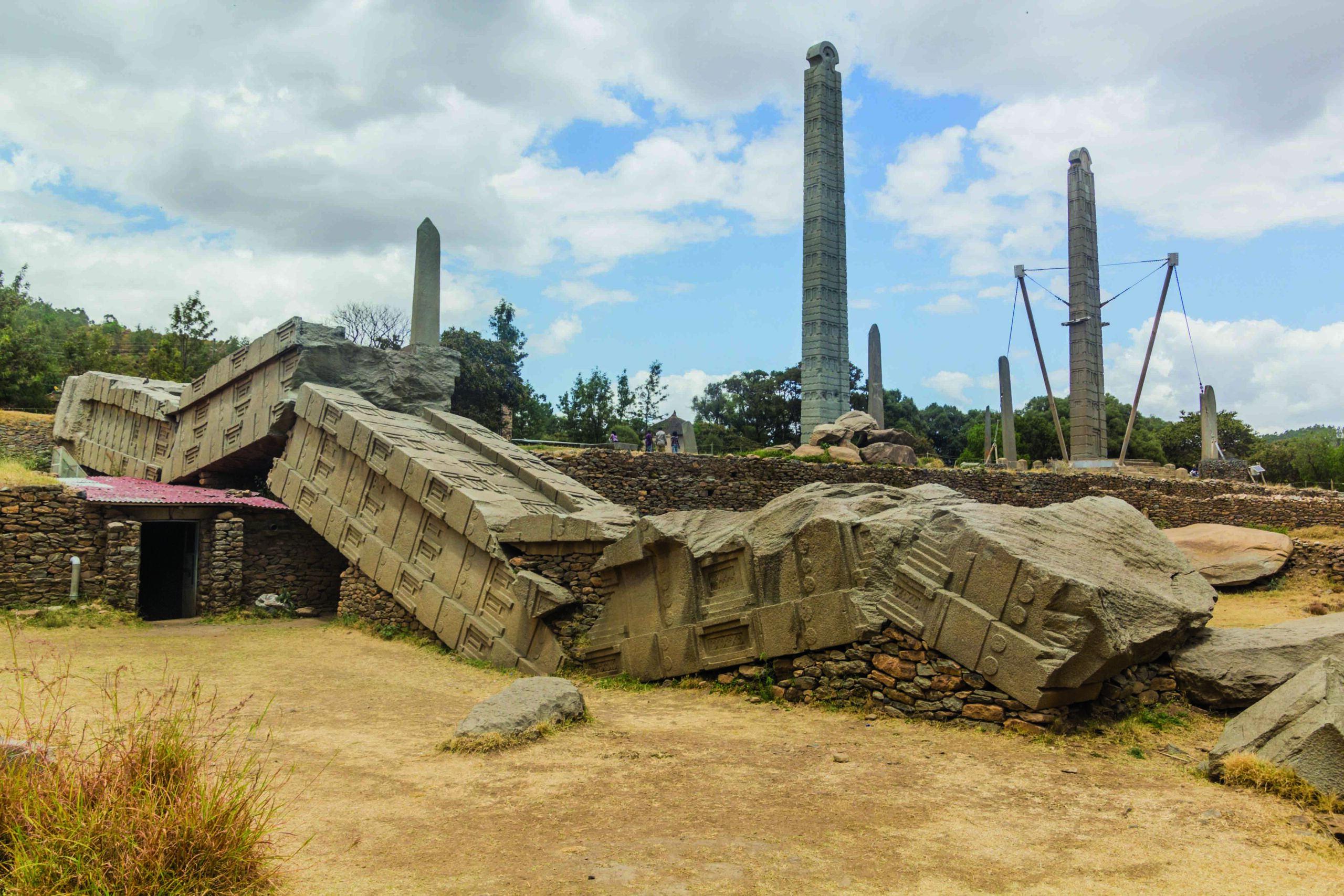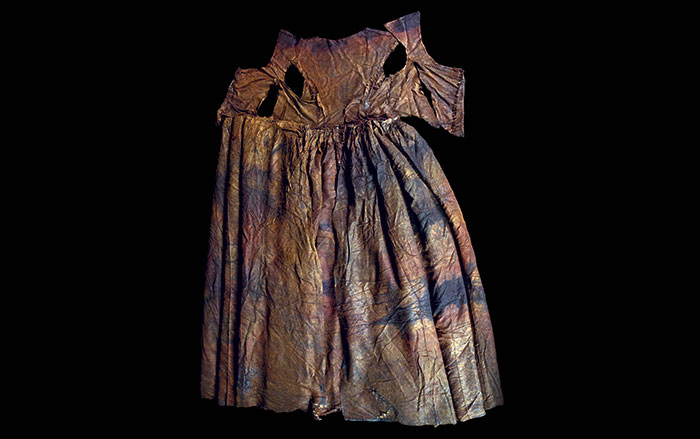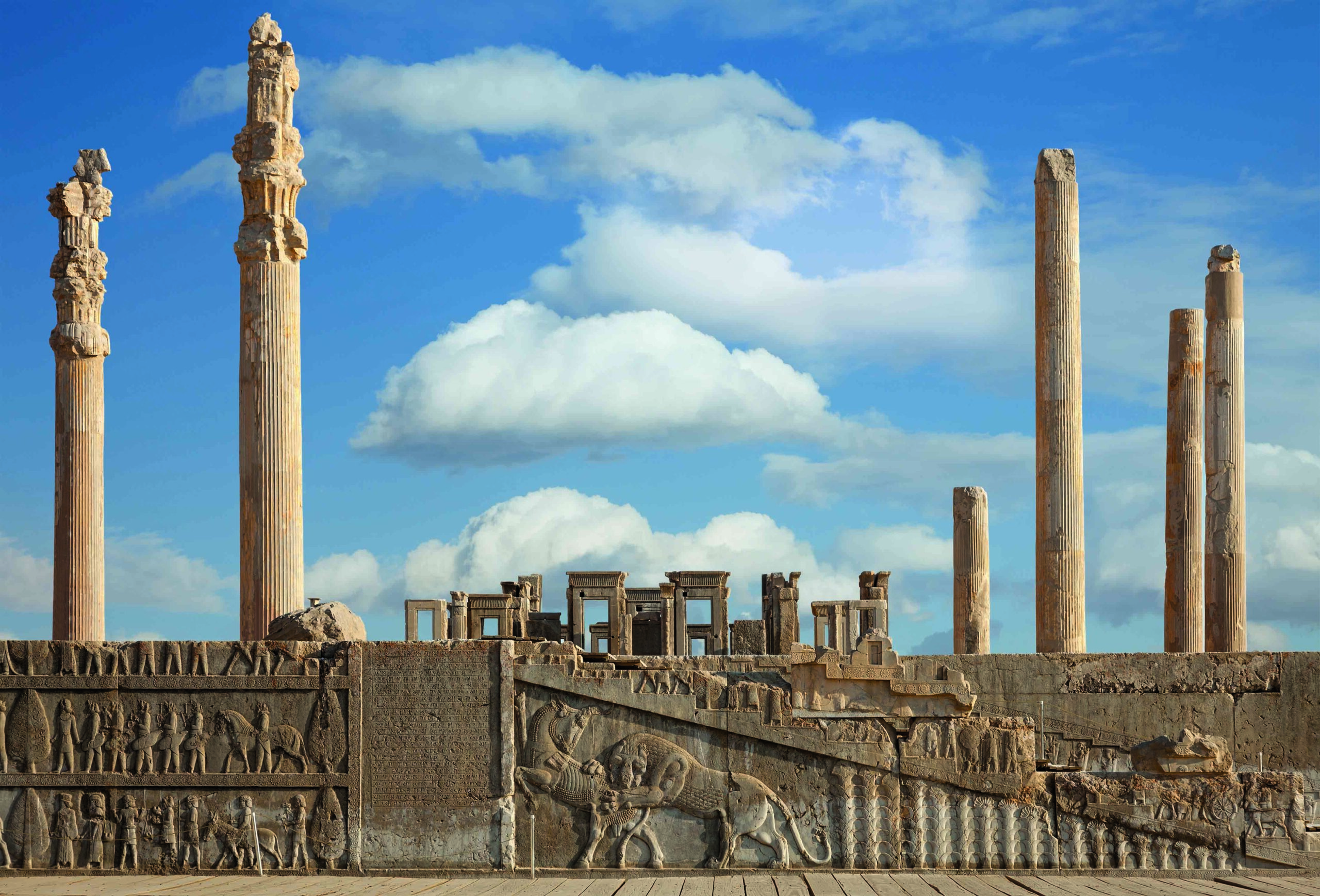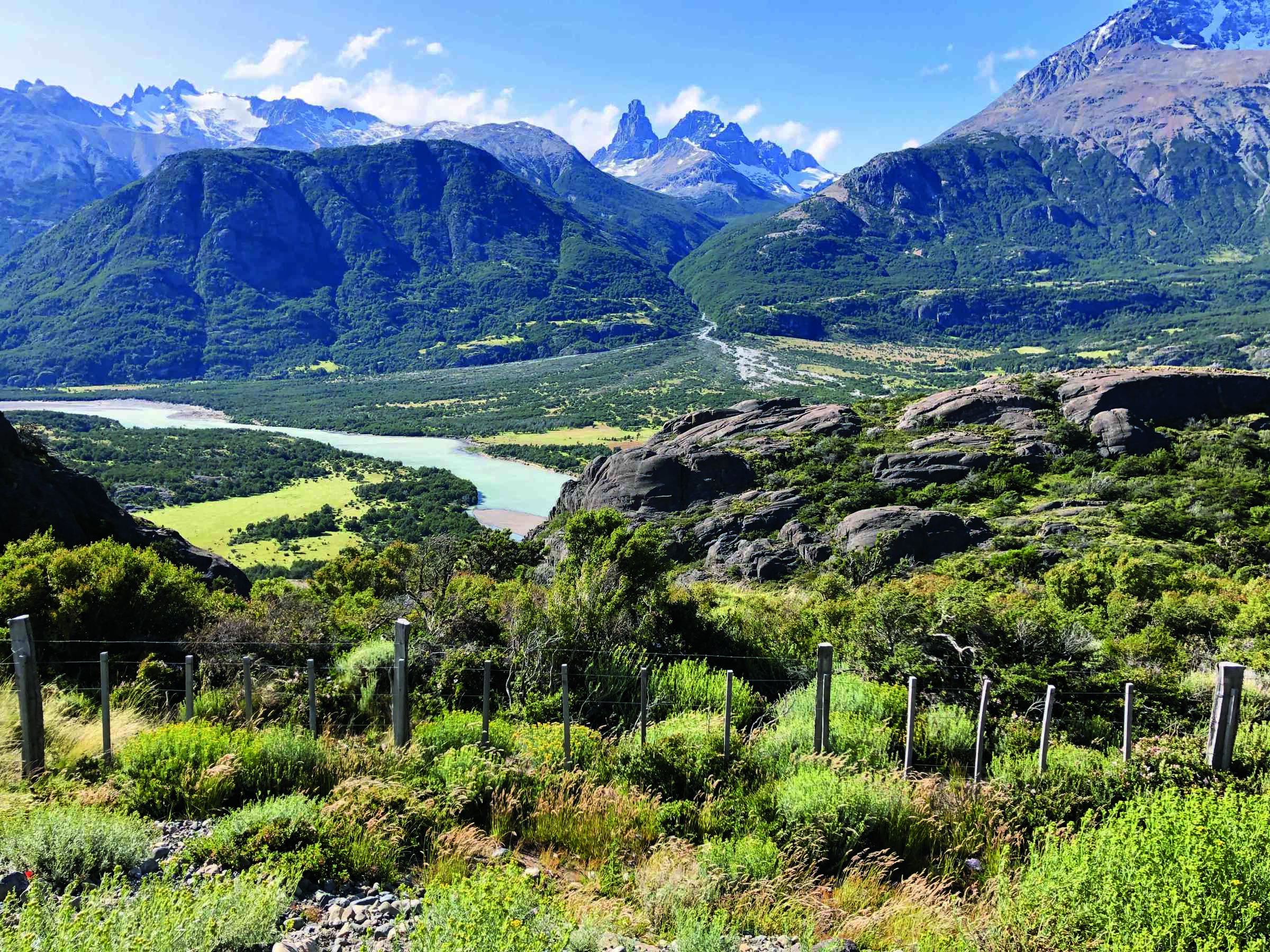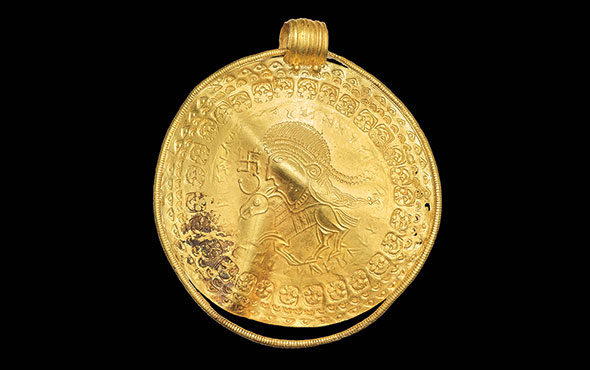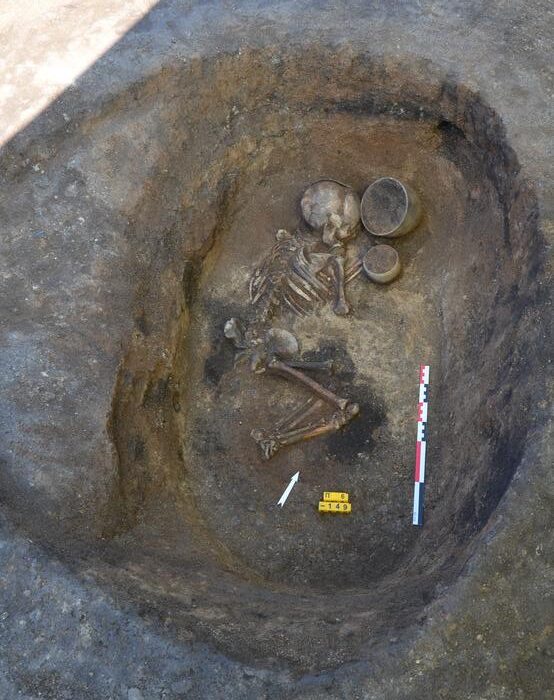
NEPLUYEVSKY, RUSSIA—According to a statement released by Johannes Gutenberg University Mainz, a team of archaeologists and geneticists have been able to analyze the genomes of an extended Bronze Age family buried in a mound at the site of Nepluyevsky in the southern Urals. Paleogeneticist Jens Blöcher and his colleagues discovered that the mound held the remains of six brothers and their families who lived as pastoralists some 3,800 years ago. They found that the brother believed to be the oldest had eight children by two women, while the other brothers had fewer children. “The burial site provides a fascinating snapshot of a prehistoric family," said Blöcher. "In Nepluyevsky, we find evidence of a pattern of inequality typical of pastoralists: multiple partners and many children for the putative firstborn son and no or monogamous relationships for most others." The results also showed that the women buried in the mound came from outside the immediate region, suggesting the culture they belonged to was likely a patralineal society, in which relationships and descent were determined through the male line. To read more about Bronze Age pastoralists in Russia, go to “Wolf Rites of Winter.”


